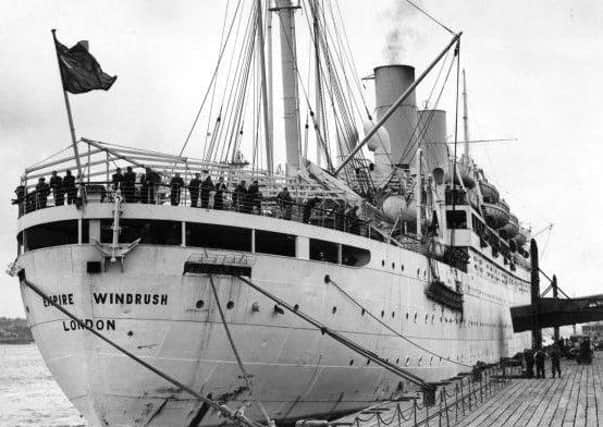Jayne Dowle: Windrush scandal a blow to Commonwealth future


When we moved house last year I came across my special 50p, forlorn and forgotten at the bottom of a drawer. Until recent months, the concept of the Commonwealth was as dusty as that coin. Now this allegiance of 53 member states is right back on the political agenda. And it reminds us of some very uncomfortable truths about the so-called United Kingdom, our place in the world and how our government treats people.
This week, you’ll be hearing a lot of talk about it on the news because the biennial Commonwealth Heads of Government Meeting is taking place in London.
Advertisement
Hide AdAdvertisement
Hide AdHowever, the issue was brought into sharp focus by two things before this landmark event; the Commonwealth Games in Australia and the scandal of the Windrush families. And in the background, steadily gaining pace and momentum since the EU referendum campaign, is the debate about how far a post-Brexit Britain might go towards re-establishing and strengthening political and trading links with its former colonies and overseas territories.
If you thought that the Commonwealth as a concept was cast aside, think again. For good reasons – and bad – it is playing a crucial role in shaping how the United Kingdom conducts itself on the international stage.
Unless there is a serious derailment of Brexit plans, we will no longer define ourselves as part of the European Union in less than a year’s time. Although the final details over the “four freedoms” – of goods, services, capital and movement – are still to be ironed out, we have to accept that our future relationship with Europe will feel very different.
I think it was the former Ukip leader Nigel Farage who first mentioned the possibility of reassessing our links with the Commonwealth countries in the referendum campaign. The least said about some aspects of his manifesto the better. However, it opened up a whole area of potential operation hitherto confined to a cupboard named “the past”.
Advertisement
Hide AdAdvertisement
Hide AdSince then, politicians and policy experts have been busily putting forward their views, exploring the possibilities and potential in much the same way as their forebears set out to conquer Africa. They don’t have much in the way of a map and they’re not sure what they will find when they get there, but they are willing to give it a go.
This was certainly on the agenda at the Commonwealth Games. There hasn’t been as much interest in the event for years. While our boys and girls were winning a record number of medals – with Yorkshire athletic prowess particularly well-represented – Jonathan Marland, a former Conservative party treasurer, was chairing a trade delegation.
In a Press conference he told reporters that the UK would, post-Brexit, be in an ideal position to “turbocharge” the Commonwealth: “We all speak English, there is fundamental rule of law that underpins our activities and a number of the major countries – Australia, Singapore, Canada and the UK – are free-trading. So there is the basis of what I think could be a Commonwealth trade framework.”
It all sounds very positive. Exciting even. Forward-thinking. And with the global politics swirling around us and allegiance with the United States putting us literally on the front line of conflict, even possibly the start of a respectful and mutually-supportive new world order with the United Kingdom at its heart.
Advertisement
Hide AdAdvertisement
Hide AdLet’s not get carried away. It would be deeply hypocritical for any government minister – Home Secretary Amber Rudd take special note – to wax lyrical about the brave new world of Commonwealth links without addressing the matter of the “children of Windrush”.
It is outrageous that British citizens who descend from the thousands of immigrants who came to the “motherland” from former colonies in the 1940s and 1950s to help rebuild a country shattered by war should be treated with dangerous disrespect by the authorities.
Denied access to healthcare, benefits and passports because of anomalies in recording their presence in the United Kingdom as decent, law-abiding, tax-paying citizens? It’s a scandal, especially when we all know that there are countless individuals from other countries living here who have never worked a day in their lives, nor paid taxes or contributed in any meaningful way to society.
As Leeds North East MP Fabian Hamilton, who represents one of the largest Caribbean communities in the UK points out, some vulnerable individuals are being held in detention centres and threatened with deportation.
Let the politicians meet and greet their overseas guests this week. However, if they start talking about setting up a new kind of Commonwealth, they must attend to matters at home first.